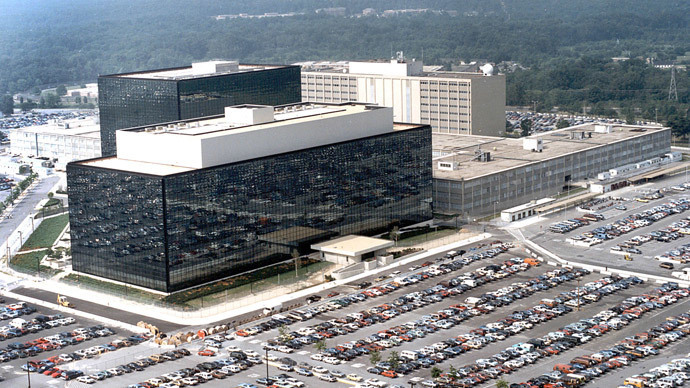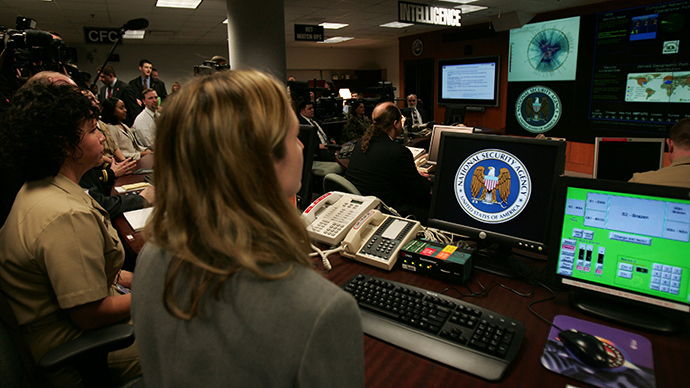US tech giants seek protection against overseas NSA snooping

In an epic battle of behemoths, Microsoft and four other US technology companies are seeking legal protection in a Manhattan court against US intelligence agencies, presently empowered to spy on millions of users’ data stored outside the country.
Some of the most reputable names in the tech business say
revelations of the National Security Agency’s global spying
network, leaked last summer by former
NSA-contractor-turned-whistleblower Edward Snowden, could result
in the loss of billions of dollars in business if overseas
customers believe their files are vulnerable to US surveillance.
The arguments were submitted to a Manhattan district judge ahead
of a July hearing to settle the matter, Reuters reported.
The latest legal action follows a court decision handed down in
April that concluded it was legal for the government to order
Microsoft to comply with a sealed search warrant for a customer
email file that is stored in Dublin, Ireland. The judge ruled
that the search warrant is a "hybrid” (which he
described as “part search warrant and part subpoena"),
saying that the recipient of a subpoena must produce information
in its possession regardless – even if that data is stored
outside of the United States.
The judge added that if territorial limitations on search
warrants were moved to cyberspace, "the burden on the
government would be substantial, and law enforcement efforts
would be seriously impeded."

Now, a group of large tech firms, comprised of Verizon, Apple,
AT&T and Cisco Systems are openly supporting Microsoft’s
upcoming court battle against government snooping.
Lawyers for the companies, which provide internet services, as
well as remote data storage (otherwise known as "cloud
computing") say they suffered another setback in April when
a Manhattan magistrate judge ruled on behalf of the government in
its effort to make Microsoft comply with a search warrant for a
customer email files, stored in Dublin, Ireland, AP reported.
Microsoft operates data centers around the world, including in
the United States, Ireland, the Netherlands, Japan and Brazil.
The world’s largest software developer argued that the decision
threatens the US Constitution's protections against illegal
search and seizure, poses a risk to US foreign relations and
"reduces the privacy protection of everyone on the
planet."
"Over the course of the past year, Microsoft and other US
technology companies have faced growing mistrust and concern
about their ability to protect the privacy of personal
information located outside the United States," Microsoft
said in court documents. "The government's position in this
case further erodes that trust, and will ultimately erode the
leadership of US technology companies in the global market."
Prosecutors, meanwhile, said Microsoft’s position on the
government’s ability to obtain communications in certain
instances is a “dangerous impediment” to the authorities
and their investigative work.

Microsoft's position "serves as a dangerous impediment to the
ability of law enforcement to gather evidence of criminal
activity," they said.
Meanwhile, the software giant, founded by Bill Gates and Paul
Allen in 1975, said it has encountered "rising concerns among
both current and potential customers overseas" and some
customers have cited the ruling as they chose a foreign provider
to store data.
10 Things We didn't know before Snowden
"If this trend continues, the US technology sector's business
model of providing 'cloud' Internet-based services to
enterprises, governments, and educational institutions worldwide
will be substantially undermined," Microsoft said.
In court documents filed last week, Verizon said the ruling, if
unchallenged, "would have an enormous detrimental impact on
the international business of American companies, on
international relations and on privacy."
It said the ruling "could cost US businesses billions of
dollars in lost revenue, undermine international agreements and
understandings, and prompt foreign governments to retaliate by
forcing foreign affiliates of American companies to turn over the
content of customer data stored in the United States."
In court papers, AT&T said the ruling threatened to provide
law enforcement with "a global information access tool
without bounds."
The Electronic Frontier Foundation, a civil liberties watchdog,
said the government's intrusiveness “poses a grave risk to
privacy."














